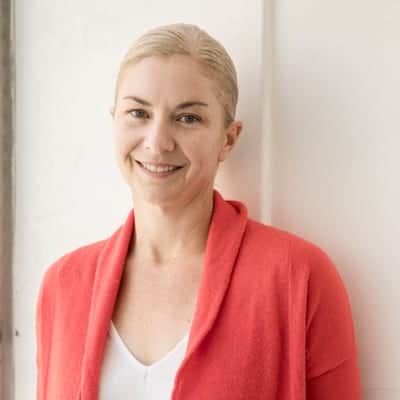As a feminist, I’m the first to admit working for a plastic surgeon left me deeply conflicted. How could I work in an industry which reduced women to their physical imperfections and promoted surgery as a means of overcoming them? It was, to say the least, difficult. But a decision to have a midlife career change had left me with little choice.
During the job interview I’d been asked about my attitude toward plastic surgery. My answer had been disingenuous: “I think it’s just fine, and it’s very much up to the individual.”
Bewildered
In truth, I felt a strange mix of bewilderment and pity for women who felt the need to alter their faces, lips, noses and breasts in the service of vanity. As a keen traveller, scuba diver and all-round adventure enthusiast, the idea of spending money on an unnecessary surgical procedure was tantamount to lunacy. I’ve always valued experiences more than material possessions. Indeed, I feel my very identity has its foundation in my experiences around the globe. To this day, I can feel the tingling thrill of parasailing over Ölüdeniz in Turkey and exploring Palawan’s sunken shipwrecks off the Philippines. I’ve been lonely and lost in some far-flung cities, and deliriously happy in others.
At what cost?
So, I began to wonder about the trade-offs these (mostly) women were making in order to have $12,000 breast implants, or to have $15,000 worth of fat suctioned from their bodies. And what of the 20-something year olds already spending hundreds of dollars on anti-ageing treatments. How, I wondered, could an identity be forged between injections of botox and filler? Yes, I was passing judgement. But, in turn, I was being judged. I was the only person in the office with wrinkles. I could sense their bewilderment and pity at my lack of interest in maintaining a perennially youthful appearance. I was seated next to a colleague who, by her own admission, couldn’t wait to go under the knife again. Her forehead was perfectly smooth, her skin flawless after countless laser treatments, and her breasts sat where mine did a decade ago.
I began to feel like the ‘before’ shot to my colleagues’ ‘after’ shots. Even the plastic surgeon I worked for asked me if I believed in the product. I wondered what I would have to do to prove that. Despite doing my job well, my wrinkles seemed to signal a failure of sorts. Was it a failure of grooming? Or were my colleagues doing something more insidious, like ascribing a moral failure to me?
Ageism
It became apparent I was in the wrong industry, and so I began to look for work elsewhere. After a steady stream of rejections, I began to wonder if my wrinkles were, in fact, impeding my ability to find a job in an industry dominated by younger people.
I recalled some of the women I’d had conversations with at the surgeon’s rooms: strong, successful women who loved their jobs but felt betrayed by ageing faces. One corporate highflier had said to me, “I’m 60, I’m great at my job, and I want to work for another 10 years. But I’ll need to look younger to do it.” Perhaps my judgement had been both premature and unfair.
I thought of another patient who, despite having a gruelling exercise regimen, could not get rid of her loose tummy skin – the result of giving birth to twins. “I wish someone had told me that no matter how hard I pushed myself I was never going to be able to exercise that skin away,” she lamented. The day after her abdominoplasty, she sat in the waiting room, tears running the length of her face. She was in excruciating pain, but it was also the first time she’d been able to see “down there”. It was, she’d said, usually covered by an “apron” of skin.
These days I’m not so judgmental about a person’s decision to undergo plastic surgery. I don’t know what it feels like to have the skin of my stomach stretched by pregnancy, or to have a cleft lip, or to have my eyesight eclipsed by droopy eyelids, nor to lose both breasts to cancer. There is no doubt plastic surgery has its place.
Dark side
There is, however, a dark side to plastic surgery – one that is manifest on the medical-history form patients are required to fill out before their consultation. Many who walked into this plastic surgeon’s clinic suffered from anxiety and depression. It’s a pattern that appears to be in keeping with the existing scientific literature – for younger people at least.
One of the most comprehensive studies into the link between plastic surgery and mental health followed more than 1500 teenage girls for 13 years. When the researchers collated their results, they found that the 78 who’d had plastic surgery were more likely to be anxious or depressed. Further, these patients had experienced a greater increase in their symptoms over the 13 years than those who did not have surgery. In other words, those with poorer mental health were more likely to seek out plastic surgery in the first place, but the surgery did not result in a positive outcome. For older people, however, the story appears to be different. Studies suggest that older women tend to report higher levels of satisfaction with plastic surgery outcomes.
Although I have no formal qualifications in mental health, I have no doubt that some of the patients I interacted with were using plastic surgery in a deeply unhealthy way. If not booking in for procedures while still in the painful early stages of recovery, they were saving for, taking out loans for, or planning their next surgical procedure or anti-ageing treatment. These were troubled young ladies, more in need of psychological care than a plastic surgeon’s scalpel.
Right reasons
To be clear, I’m not advocating against plastic surgery, but rather that people choose it at the right time of life and for the right reasons.
At the very least, we should be telling our young people that plastic surgery won’t fix low self-esteem – and perhaps figure out how we can help them develop a healthier sense of self before they resort to costly and risky surgical procedures. More comprehensive screening procedures would be a positive first step.
I’m still not willing to part with hundreds of dollars for botox or filler; there’s too much adventure to be had instead. But as the job market becomes more and more competitive, and the intelligent, successful women I admire maintain relatively youthful visages, I can’t be certain I won’t join them.







